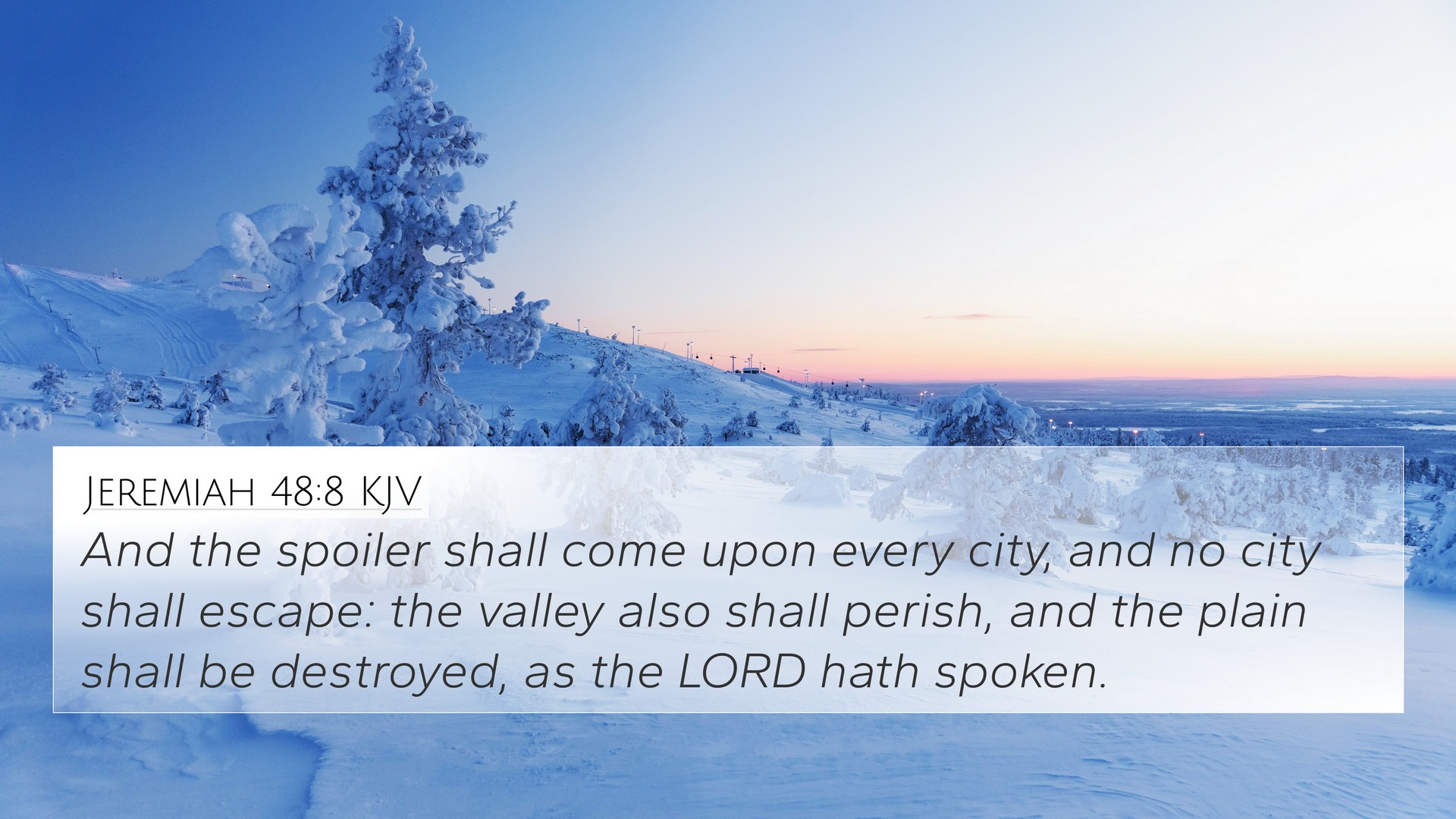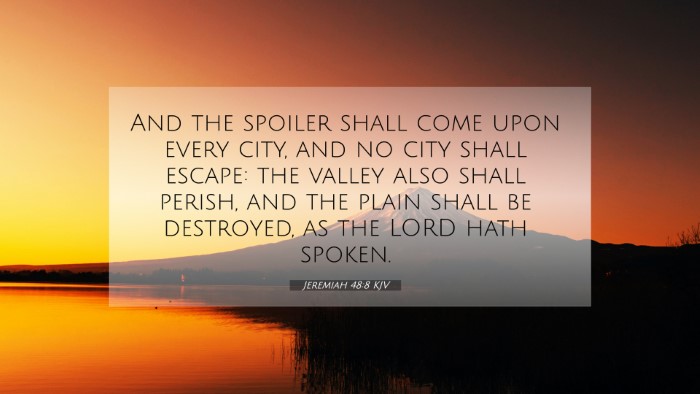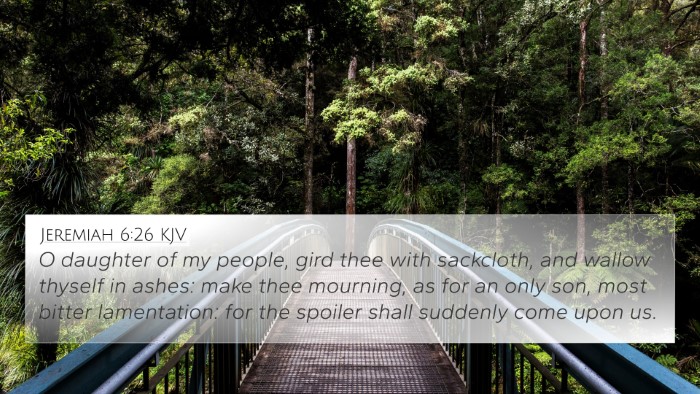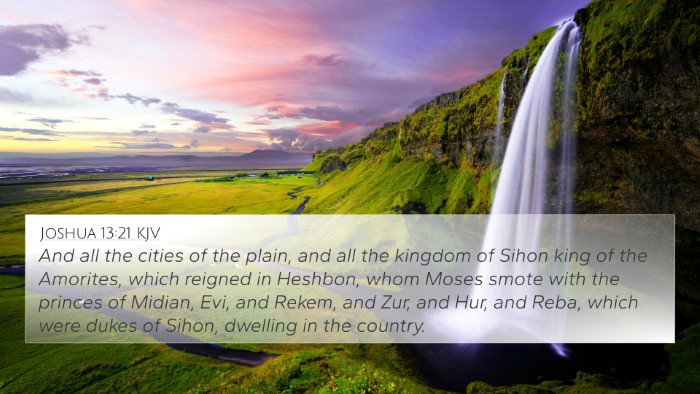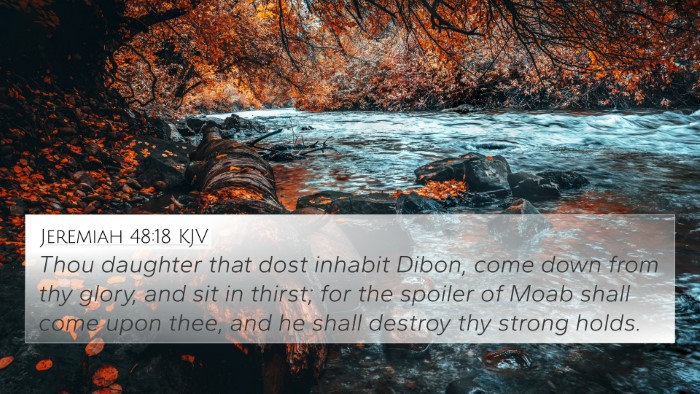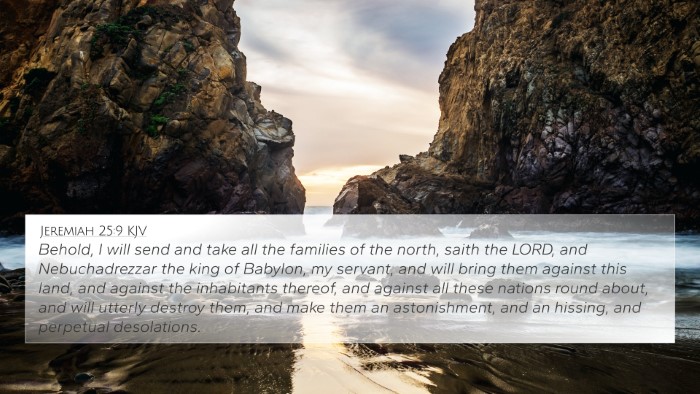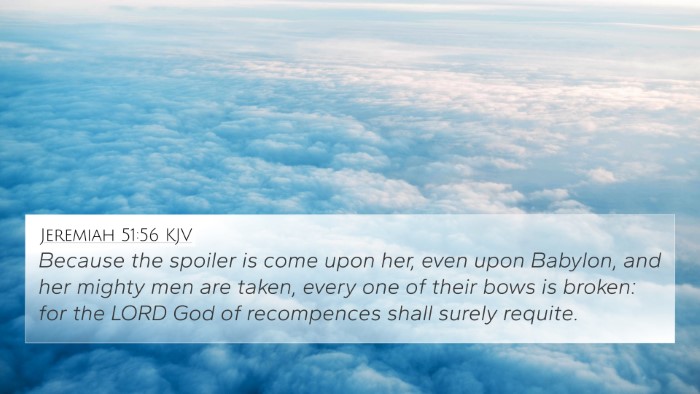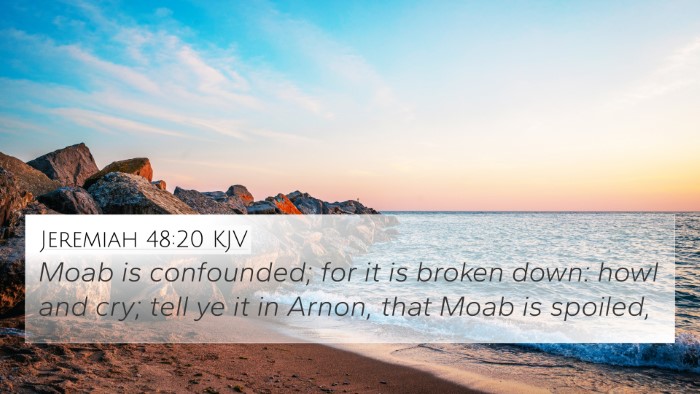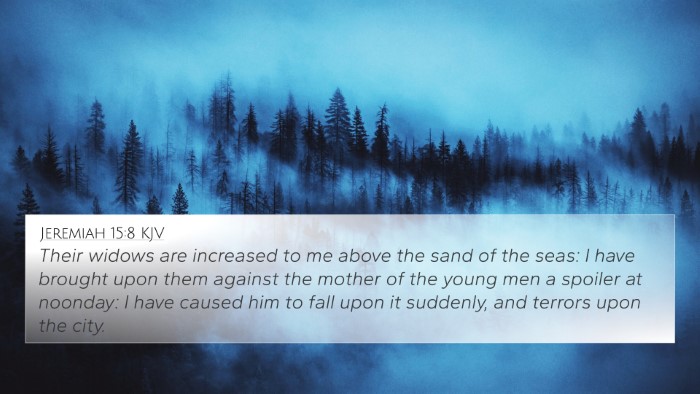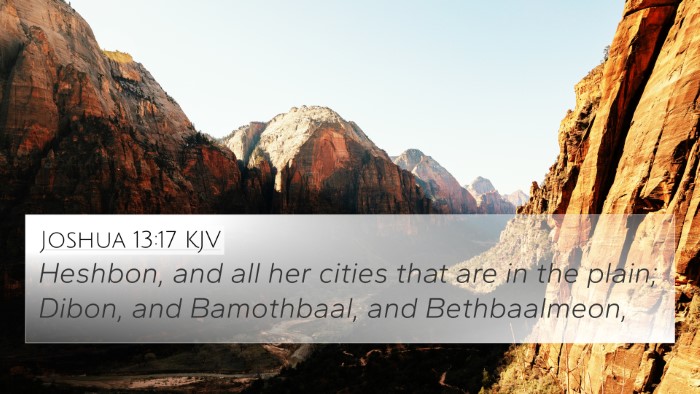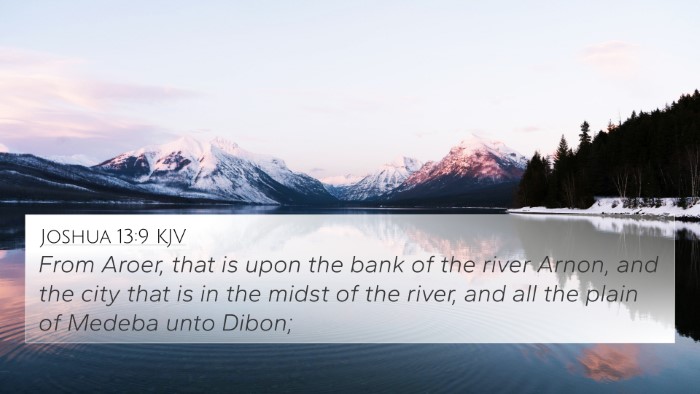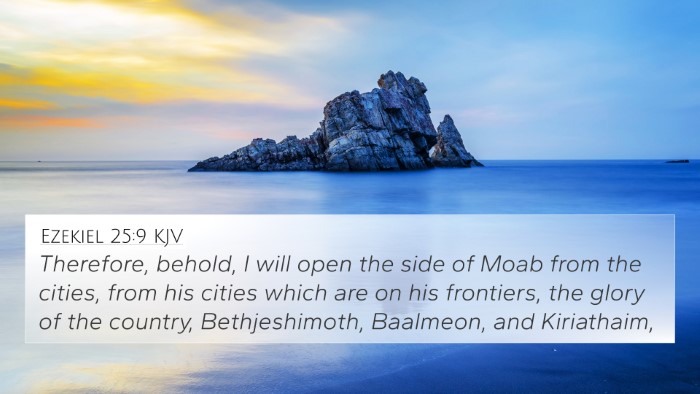Understanding Jeremiah 48:8
Jeremiah 48:8 states, "And the destruction shall come upon every city, and no city shall escape: the valley also shall perish, and the plain shall be destroyed, as the LORD hath spoken." This verse is a prophecy concerning the impending judgment on Moab, symbolizing divine retribution and the serious consequences of national sin.
Summary of Key Themes
- Divine Judgment: The context of this verse emphasizes the certainty and totality of God's judgment on Moab for its pride and idolatry.
- Historical Context: Jeremiah prophesied during a time when Moab was a neighboring nation to Israel, often at odds with Israelite interests.
- Inescapability of Judgment: The phrase "no city shall escape" underscores the comprehensive nature of God's judgment. It reinforces that divine decrees are not subject to human failure.
- Role of Prophecy: Prophetic messages like this one serve to warn nations and individuals of the consequences of their moral decisions.
Commentary Insights
Insights from Matthew Henry
Henry notes that the desolation of Moab is a figurative representation of how pride leads to downfall. He emphasizes that God’s wrath is not arbitrary; it is a response to persistent unfaithfulness and rebellion.
Insights from Albert Barnes
Barnes provides a historical context for this prophecy, illustrating that Moab's military power will be utterly defeated. He highlights the idea that God’s messages through prophets like Jeremiah often serve a dual purpose: warning before judgment and affirmation of God's sovereignty.
Insights from Adam Clarke
Clarke discusses the imagery in the verse, such as valleys and plains representing human endeavors that are often in vain without God's favor. He encourages readers to reflect on the nature of God’s righteousness, which ultimately leads to the fall of the proud.
Cross-References for Jeremiah 48:8
To deepen the understanding of Jeremiah 48:8, consider these biblical cross-references:
- Isaiah 15:1-9: A prophecy concerning Moab’s destruction highlighting similar themes of desolation.
- Ezekiel 25:8-11: Another prophecy that confirms God's judgment on Moab.
- Romans 11:22: A reminder of God’s kindness and severity, applicable to nations as well as individuals.
- Proverbs 16:18: "Pride goes before destruction,” tying the moral lessons across scriptures.
- Lamentations 3:33: God's judgment is part of His justice, underscoring the themes of divine discipline.
- Amos 2:1: An announcement of doom for Moab, reinforcing Jeremiah's message.
- Zephaniah 2:8: Highlights the fate of Moab and how the pride of its heart has led to destruction.
Connecting Themes Through Cross-Referencing
By cross-referencing these verses, we see a clear biblical motif surrounding pride, judgment, and the sovereignty of God. This highlights the importance of moral integrity for both individuals and nations when it comes to God's favor.
Applications for Study
For those engaged in bible concordance and bible cross-reference tools, understanding such connections is vital for comprehensive biblical analysis. Consider the use of tools like:
- Bible cross-reference guide: to explore interconnections among verses.
- Cross-reference bible study: methodologies to uncover thematic links.
- Cross-reference Bible study methods: to deepen understanding of complex scriptural themes.
Conclusion
Jeremiah 48:8 serves as a poignant reminder of the consequences of national sin and pride. The connections made through inter-biblical dialogue enrich our understanding of God's justice and mercy. Readers are encouraged to utilize bible cross-reference systems for a more in-depth study of scripture, ensuring a robust grasp of the biblical narrative.
